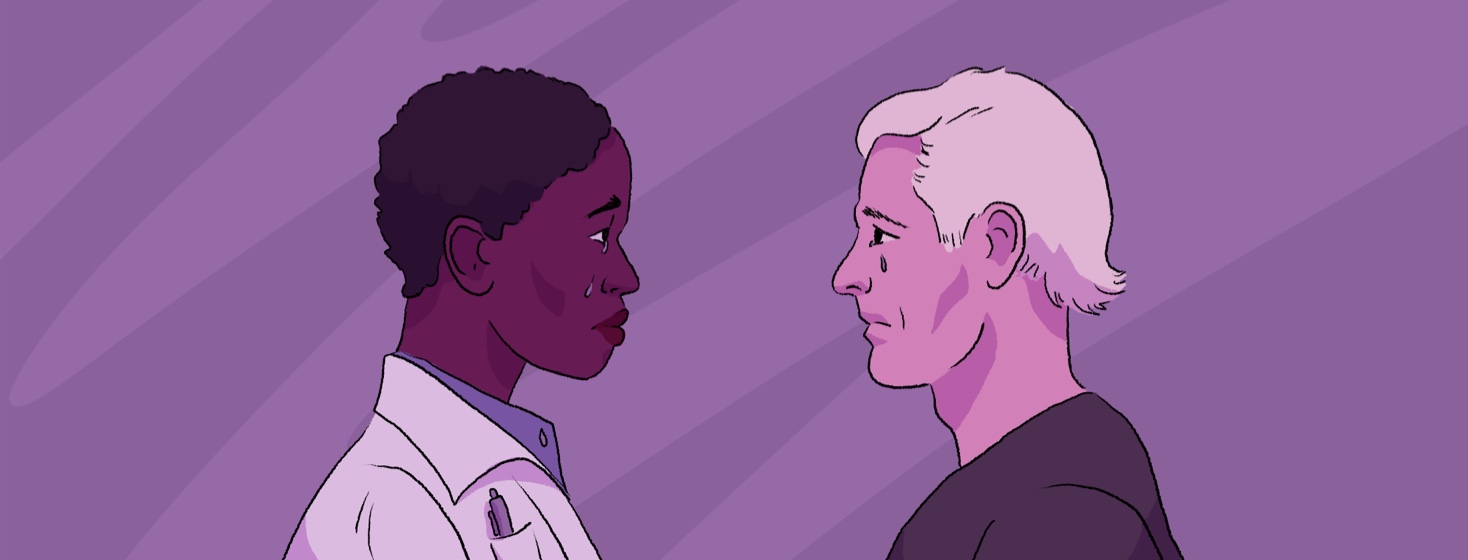The Right Amount of Empathy
My oncologist works in a large research hospital that is attached to a medical school. When I go to an appointment with him to check on my follicular lymphoma, there are sometimes other people in the room with us – medical students, interns, residents, and doctors receiving special training in treating patients with blood cancers.
At my last appointment, I found myself alone with one of those folks receiving advanced training. He did an exam first before my regular oncologist came in. Before he left, the trainee asked if I had any questions. I asked the same one I often ask of people training to be cancer doctors: “What made you choose oncology?”
An honest answer
Honestly, if I were smart enough to be a doctor, I’m not sure I’d choose this specialty. It can’t be easy.
The trainee told me a little about his decision. He’s already a medical doctor; he’s receiving three more years of training to become a specialist. His choice of oncology really came down to this: “I like the idea that I might be able to cure someone.”
And if I ever went to medical school and chose a specialty, that might be why I would choose oncology. I know the anguish of being a patient. It would be great to be able to tell someone they were cured.
The trainee thought about his answer a little bit more, and after a pause, he said, “I was worried I wouldn’t be able to disassociate myself. But I guess I’ve been able to do that.”
Disassociation
By “disassociate,” he meant he wasn’t sure if he’d be able to disconnect emotionally from his patients. This is exactly why I’d have trouble being an oncologist. I’d love to be able to tell someone they were cured. But I’d hate to have to tell them any bad news. And I’m not sure I could ever really break whatever emotional connection I inevitably made with a patient.
I thought about this a lot on the way home from the appointment. In a way, I didn’t like the answer he gave. I want my oncologist to have trouble disassociating. I want him to care. On the other hand, doing disassociating is probably what gets him through the day.
A tail of two doctors
It made me think of my first oncologist, Dr. R (I’ve had five of them in 13 years. Not my fault – they keep retiring or moving). I liked him a lot, and part of the reason was his empathy. He was gentle as he could be when I had a bone marrow biopsy, and he always seemed a little sad before he told me anything negative. I needed that.
A couple of weeks after I was diagnosed, he sent me to a specialist, Dr. C, one of his old professors. “Dr. C is not going to sugarcoat anything,” he told me. “You’ll get straight talk from him.” Dr. C did indeed give me a straight talk. I’ll never forget one sentence from our meeting: “This disease will shorten your life span.” I spun into a deep depression right after he told me that. But maybe it was something I needed to hear. I’m good at looking at the bright side, and I appreciated Dr. R’s gentle empathy. But Dr. C forced me to be realistic about things, and be sure to not completely ignore things just because they were bad.
In the end, I appreciated the trainee’s honesty. I’m not sure what the right amount of empathy is from a doctor. I’m not sure I could achieve the right balance myself. As much as some of my oncologists have irritated me at times, I have enough empathy of my own to know how hard their job must be.

Join the conversation